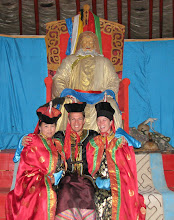Abenaki Native American
Abenaki

The forests also provided building materials such as birch bark, with which the Abenaki in the western portion of the area built longhouses, often in villages on high bluffs above the waters as protection from attack. Each longhouse, framed with saplings young enough to be cut by stone axes and covered with birch bark, could house several related family groups. The western bands would collect maple sugar sap each February, which they boiled down as is done today to make syrup and candy.
In the eastern portions of the area, where the forest and resources were less dense, eastern bands of the Abenaki made single-family, dome-shaped wigwams called witus.
Basic clothing consisted of a hide breechcloth for men and knee-length skirts for the women. In winter, animal hide or fur robes were added, often constructed as long, sleeveless coats. Moose hide provided an excellent material for making moccasins (lined with rabbit fur), leggings and caps.
During winter months, when the water monsters were trapped beneath the ice and could not hear, the members of the Abenaki would gather to hear stories of the old men - stories of good and bad beings like Gluscap, Trickster the Raccoon.
When the French began to move into the area in search of fur trade, the Abenaki chose to align themselves with them in hopes they would have some control over the influx of foreigners. During the 1600s and 1700s, the Abenaki also continually fought off advances by the Iroquois. Ultimately, however, the Abenaki succumbed to new diseases brought to them by the white man. Once the English arrived, the remaining Abenaki fled to Canada. Today, the descendents of the tribe live in Massachusetts, New Hampshire, New York, Vermont and Quebec, Canada.


0 Comments:
Post a Comment
Subscribe to Post Comments [Atom]
<< Home